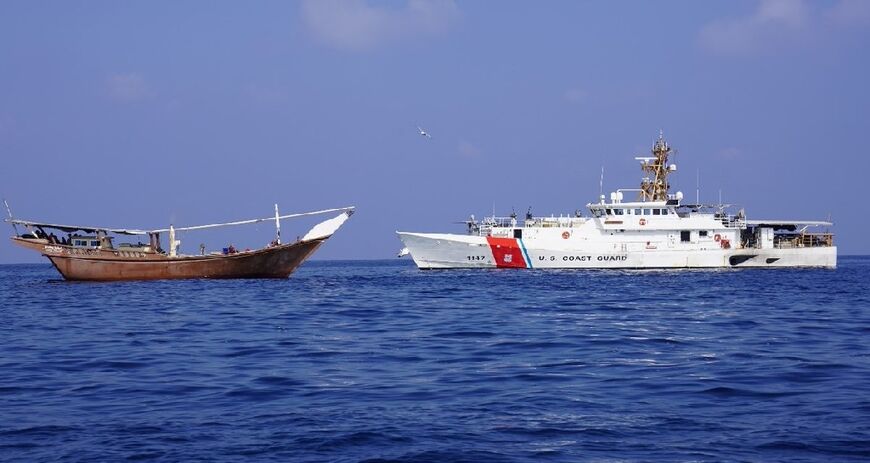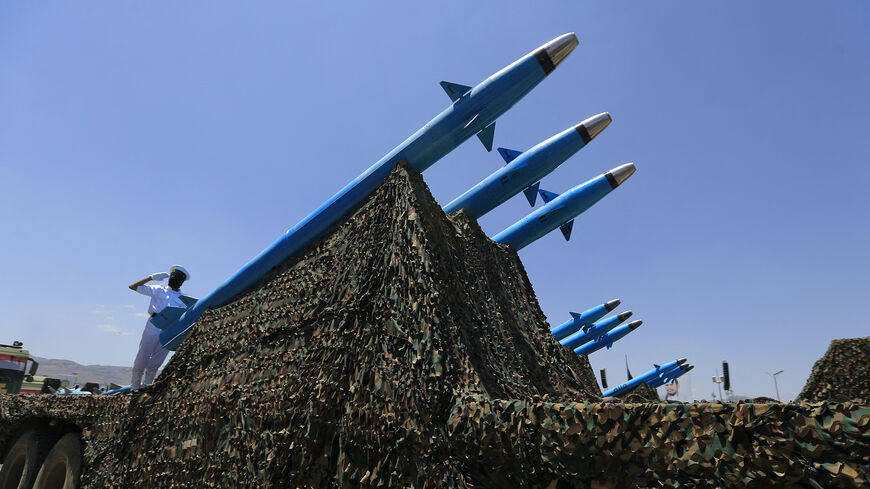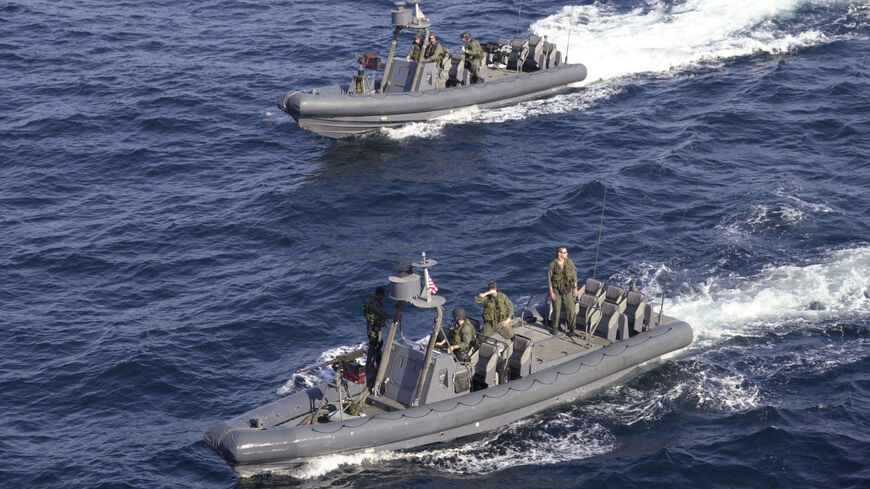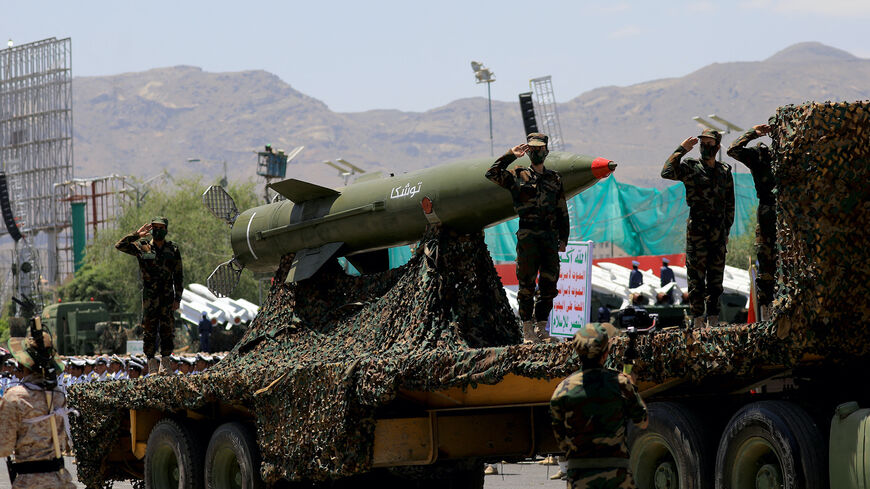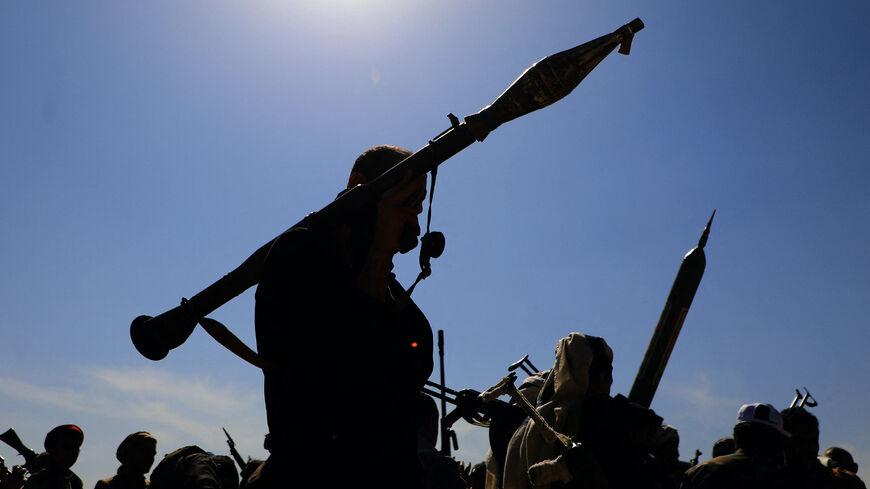US seizes Iranian missile parts in Arabian Sea headed to Yemen's Houthis
The United States has struggled to choke off Iran's smuggling of weapons components to Yemen's Houthi rebels.

WASHINGTON — The US Coast Guard seized a cache of ballistic missile and sea drone components destined for Yemen’s Houthi rebels from Iran in the Arabian Sea late last month.
The haul of more than 200 packages also included explosives, military-grade communications and network equipment as well as anti-tank guided-missile-launcher assemblies, US Central Command said Thursday.
“This is yet another example of Iran’s malign activity in the region,” the United States' top commander in the Middle East, Gen. Michael “Erik” Kurilla, said in a press release.
Why it matters: It was the second seizure of advanced Iranian weapons components by the US military en route to Yemen under a month.
US Navy SEALs boarded an unmarked dhow in the Arabian Sea on Jan. 11, seizing Iranian ballistic and cruise missile components onboard thought to be destined for the Houthis.
Over the past few months, the Yemeni faction has launched dozens of missiles into commercial shipping lanes off Yemen’s coast in claimed retaliation for Israel’s war in Gaza. The Iran-armed Houthis have taken control of swaths of Yemen since ousting the country’s internationally recognized government in 2015.
Shipments of arms to the Houthis violate a 2015 UN arms embargo on Yemen.
US and allied naval forces have repeatedly seized large caches of small arms and ammunition from Iran to the Houthis in recent years, but the Jan. 11 operation was the US military’s first seizure of advanced Iranian conventional weapons components at sea since 2019.
The United States has pursued a tripartite strategy in a bid to shut down the Houthis’ attacks on commercial shipping that have significantly disrupted Red Sea merchant traffic and led to significant revenue losses for Egypt’s government.
The United States and United Kingdom have launched three waves of airstrikes on Houthi weapons storage facilities and radar sites since Jan. 11, aiming to chip away at the faction’s accumulated arsenal of Iranian projectiles. Meanwhile, naval interdiction efforts and redoubled economic sanctions have sought to choke off the Houthis’ supply lines.
Know more: The US Navy has sought to increase international maritime patrols in the region’s waterways in recent years, but officials have expressed frustration with a lack of actionable intelligence needed to put a dent in Iran’s arms shipments to the Houthis.
Before boarding a suspected smuggling vessel, the US Navy requires solid intelligence that the ship contains weapons components originating from Iran, current and former US Navy officials told Al-Monitor last month.



